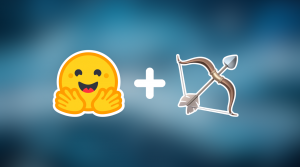With the NLTK library, it is often difficult to find your way around, especially with the tags module (pos_tag)!
This module allows you to know the value of each word : adjective, noun, proper name, etc.
In this post, we propose you a summary table of each NLKT tags and their correspondence 😉
Tags NLTK
| Tag | Meaning |
| CC | Coordinating conjunction |
| CD | Cardinal number |
| DT | Determiner |
| EX | Existential there |
| FW | Foreign word |
| IN | Preposition or subordinating conjunction |
| JJ | Adjective |
| VP | Verb Phrase |
| JJR | Adjective, comparative |
| JJS | Adjective, superlative |
| LS | List item marker |
| MD | Modal |
| NN | Noun, singular or mass |
| NNS | Noun, plural |
| PP | Preposition Phrase |
| NNP | Proper noun, singular Phrase |
| NNPS | Proper noun, plural |
| PDT | Pre determiner |
| POS | Possessive ending |
| PRP | Personal pronoun Phrase |
| PRP | Possessive pronoun Phrase |
| RB | Adverb |
| RBR | Adverb, comparative |
| RBS | Adverb, superlative |
| RP | Particle |
| S | Simple declarative clause |
| SBAR | Clause introduced by a (possibly empty) subordinating conjunction |
| SBARQ | Direct question introduced by a wh-word or a wh-phrase. |
| SINV | Inverted declarative sentence, i.e. one in which the subject follows the tensed verb or modal. |
| SQ | Inverted yes/no question, or main clause of a wh-question, following the wh-phrase in SBARQ. |
| SYM | Symbol |
| VB | Verb, base form |
| VBD | Verb, past tense |
| VBG | Verb, gerund or present participle |
| VBN | Verb, past participle |
| VBP | Verb, non-3rd person singular present |
| VBZ | Verb, 3rd person singular present |
| WDT | Wh-determiner |
| WP | Wh-pronoun |
| WP | Possessive wh-pronoun |
| WRB | Wh-adverb |
Short example of the use of the nltk.tag module :
from nltk import tag
tag.pos_tag(['I', 'am', 'a', 'tag', 'from', 'NLTK'])Output : [(‘I’, ‘PRP’), (‘am’, ‘VBP’), (‘a’, ‘DT’), (‘tag’, ‘NN’), (‘from’, ‘IN’), (‘NLTK’, ‘NNP’)]
The tags from the NLTK library is used a lot for NLP projects but others use more classical libraries.
In this article especially, we use typical Machine Learning libraries for text classification.
A tutorial that we warmly recommend ! 🔥
One last word, if you want to go further and learn about Deep Learning - I've prepared for you the Action plan to Master Neural networks. for you.
7 days of free advice from an Artificial Intelligence engineer to learn how to master neural networks from scratch:
- Plan your training
- Structure your projects
- Develop your Artificial Intelligence algorithms
I have based this program on scientific facts, on approaches proven by researchers, but also on my own techniques, which I have devised as I have gained experience in the field of Deep Learning.
To access it, click here :




